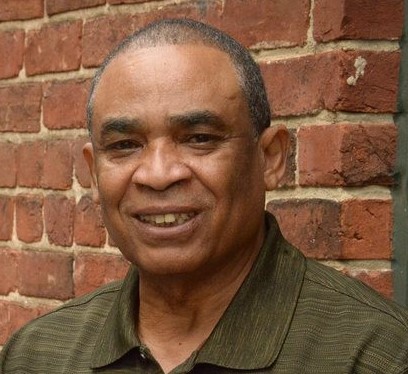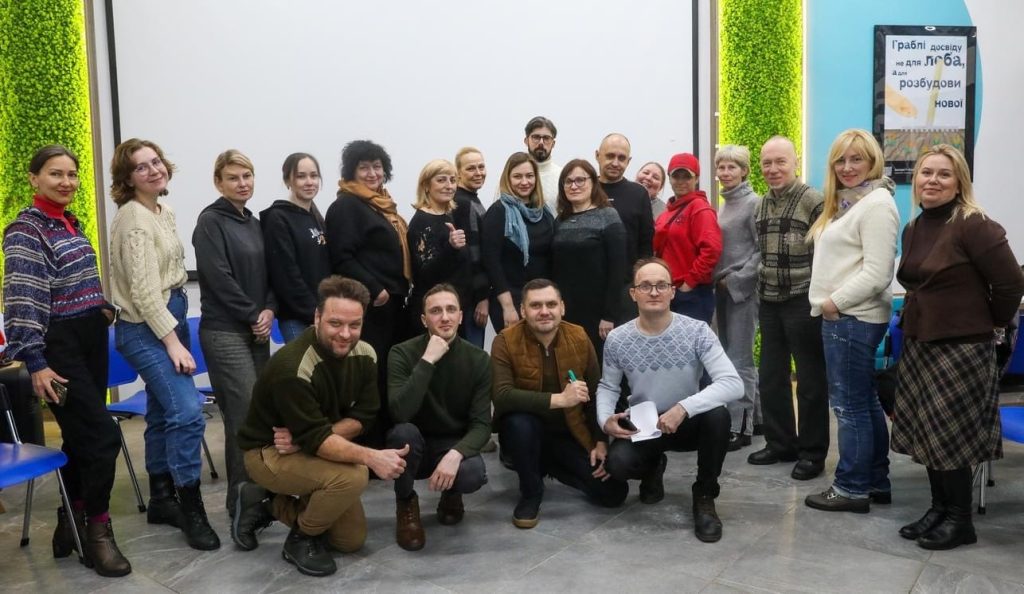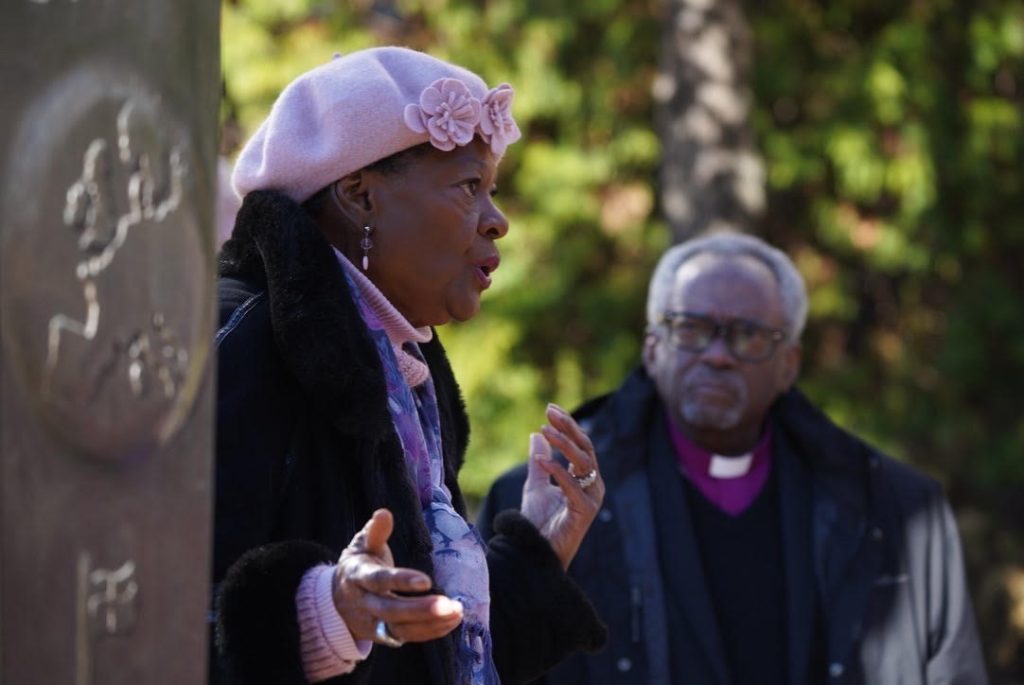It’s hard not to get discouraged by the deepening political and racial polarization, the widespread undermining of democracy, the brutal assault on Ukraine, and the constant focus on negative news by the media. As we close out the year, I want to share some hopeful developments and news of how inspired actions are shining light in the darkness of the world.
The Trustbuilding program first developed in Richmond, Virginia is now active in 12 countries and Initiatives of Change International was presented with the UN’s Intercultural Innovation Award. A few days ago, I facilitated an on-line introductory workshop for the Cameroon team which will launch its activities in January to address Francophone and Anglophone divisions. And in October, an Indian colleague in Sweden and I led workshops for teachers in India who are preparing to lead a program to close the cultural gap between urban and rural school students. A team in Nigeria is working to build trust between police and the community. Members of Hutu and Tutsi ethnic groups in Burundi, including participants whose family members were killed in the 2015 violence, are coming together to share personal stories.

Rev. Sylvester “Tee” Turner, my longtime colleague with Hope in the Cities/Initiatives of Change from Richmond, visited South Africa to support the Trustbuilding team and particularly to work with men. South Africa has a very high rate of gender-based violence. Tee addressed four men’s forums in Johannesburg and Pretoria including one with pastors. Common issues were experience of absentee fathers, being unable to provide for family, homelessness, and drug addiction. The focus of Tee’s message was to help men find their worth. “If you don’t feel your own worth, you end up mistreating others. When we understand our history, we can begin to understand why people, particularly men, are the way they are. Hurting people hurt other people, particularly those close to them,” he said. “When we unpack our history, we can use it to heal ourselves and others.” As a young man it was anger that gave him power. But he came to the realization that forgiveness gave him greater power. “The point is, anger doesn’t heal us,” he said. “When you get to the root, you get to the pain. Then you are able to work on it, apply different things to address the problem.” See full story
Undeterred by winter cold or threat of bombs, the first Trustbuilding activities got underway in Ukraine in Lviv, Dnipro and Kyiv. “Uncertainty is a good word to describe the atmosphere before the start of the training,” says Angela Starovoytova, the facilitator. The first snow was falling in Kyiv and air alarms were loudly heard. Angela and her colleague Leonid were uncertain about how many people would join, when they would be able to start, and how everything would go. But Angela reports “fruitful interactions between residents, internally displaced persons (IDPs), and local authorities. We talked about how to build connections between people and how to interact and develop understanding.” Workshops are continuing.

In other news, Rev. Michael Curry, the presiding bishop of the Episcopal Church visited the site of Lumpkin’s Jail and the slave market in Richmond earlier this month. Virginia Delegate Delores McQuinn, Rev. Ben Campbell, founder of Richmond Hill, and Tee Turner shared the story of the historic trail of enslaved Africans, the Reconciliation statue, and plans for a national Slavery Museum. See the report in the Episcopal News Service

Among the many important developments this year the Culture of Health Leadership Institute for Racial Healing was launched by Dr Gail Christopher who leads the National Collaborative for Health Equity. Dr Christopher was a major funding partner of Initiatives of Change/Hope in the Cities when she was with the W.K.Kellogg Foundation. This 18-month leadership experience is supported by the Robert Wood Johnson Foundation and uses the Truth, Racial Healing and Transformation (TRHT) framework to “strengthen the ecosystem of practitioners who are advancing racial and health equity in their work.” The cohort of about 40 includes people in many sectors working for healing and equity in cities across the country. As a member of the Advisory Committee I am excited to see the quality of the participants and to hear about their experiences.
And I am pleased to also be engaged in the Collective Healing project, part of “Healing the Wounds of Slavery,” an international program of UNESCO and the Guerrand-Hermè Foundation for Peace. The first steps involved a Desk Review comprising a comparative analysis of healing experiences, the drafting of a handbook for facilitators, and planning meetings for intergenerational dialogue groups with communities in Colombia, UK, Netherlands, Nigeria and the USA.
Let us approach 2023 in a spirit of expectation. We all have a part to play in creating spaces for constructive change. In the words of the late Bishop Desmond Tutu, God uses each of us in different ways. “Even if you are not the best one, you may be the one who is needed and who is there.” As I write in Trustbuilding, “We are all on a voyage of discovery. We can accompany each other on the journey, and we can live so that our communities become places of hope and opportunity, where the contribution of each person in valued.”